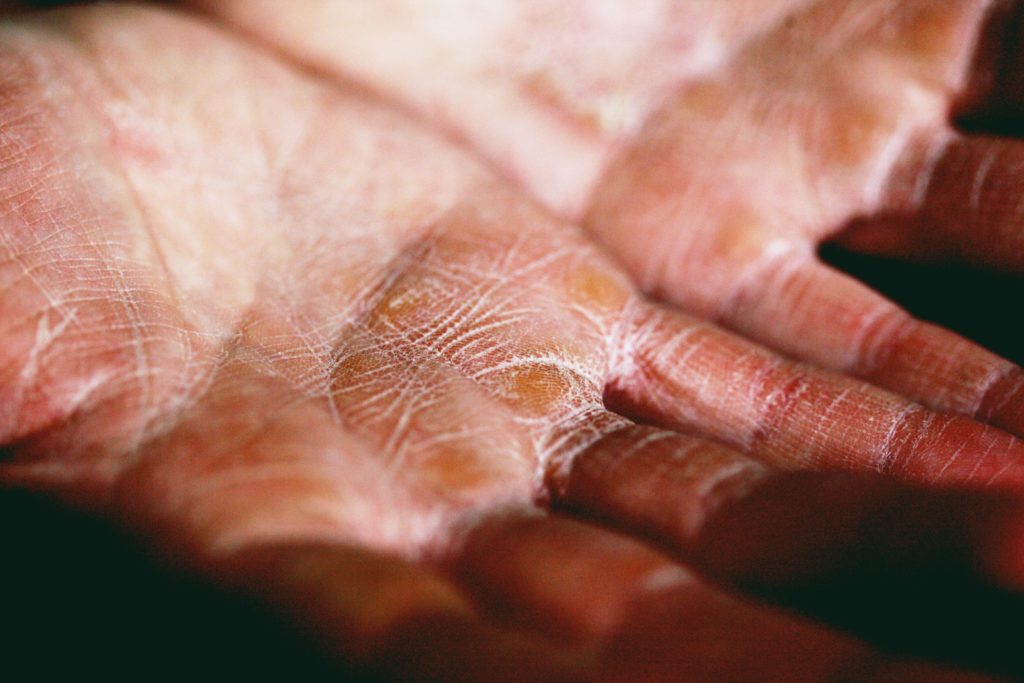Eczema, a chronic skin condition characterized by itchy, inflamed patches of skin, can be both uncomfortable and frustrating. Traditional treatments often involve prescription medications and over-the-counter creams, which may come with side effects or may not work for everyone.
Fortunately, natural remedies can provide soothing relief and help manage eczema symptoms effectively. This article explores various DIY natural treatments to alleviate eczema, offering practical solutions that you can create at home.
What is Eczema?
Eczema, also known as atopic dermatitis, affects millions of people worldwide. It manifests as red, itchy patches on the skin that can become dry, cracked, and inflamed.
The exact cause of eczema is not fully understood, but it is believed to involve a combination of genetic and environmental factors. Common triggers include allergens, irritants, and stress.
Benefits of Natural Treatments
Natural treatments for eczema offer several advantages over conventional options. They are often gentler on the skin and free from synthetic chemicals, fragrances, and preservatives that can worsen symptoms. Many natural remedies also have anti-inflammatory, moisturizing, and healing properties, making them effective for soothing and managing eczema.
Top DIY Natural Eczema Treatments
1. Oatmeal Baths
Oatmeal is a well-known remedy for soothing irritated skin. It contains anti-inflammatory properties and helps lock in moisture.
How to Use:
- Prepare the Oatmeal: Blend one cup of plain, uncooked oats into a fine powder.
- Add to Bath: Sprinkle the powdered oats into a warm bath.
- Soak: Soak in the bath for 15-20 minutes, then gently pat your skin dry.
Oatmeal baths can help relieve itching and reduce inflammation, making them ideal for eczema flare-ups.
2. Coconut Oil
Coconut oil is a versatile ingredient with antimicrobial and moisturizing properties, making it beneficial for eczema-prone skin.
How to Use:
- Choose Virgin Coconut Oil: Opt for pure, virgin coconut oil to avoid added chemicals.
- Apply: Gently massage a small amount of coconut oil onto affected areas.
- Repeat: Use twice daily to keep your skin hydrated and reduce dryness.
Coconut oil helps create a barrier on the skin, locking in moisture and preventing further irritation.
3. Aloe Vera
Aloe vera is known for its soothing and healing properties, which can help reduce inflammation and promote skin repair.
How to Use:
- Extract Aloe Gel: Cut an aloe vera leaf and scoop out the gel.
- Apply: Apply the fresh aloe vera gel directly to the affected areas.
- Leave On: Allow it to dry on the skin, then rinse off with lukewarm water.
Aloe vera can provide immediate relief from itching and discomfort while promoting healing.
4. Honey
Honey has natural antibacterial and moisturizing properties, making it a beneficial treatment for eczema.
How to Use:
- Use Raw Honey: Choose raw, unprocessed honey for the best results.
- Apply: Spread a thin layer of honey over the affected skin.
- Leave On: Let it sit for 15-20 minutes, then rinse off with warm water.
Honey helps maintain skin hydration and protects against infections, which can be helpful for eczema-prone skin.
5. Chamomile Tea Compress
Chamomile tea has anti-inflammatory properties that can help soothe irritated skin.
How to Use:
- Brew Tea: Steep a chamomile tea bag in hot water for 5-10 minutes.
- Cool: Allow the tea to cool down.
- Soak a Cloth: Soak a clean cloth in the cooled tea.
- Apply: Place the cloth on the affected areas for 10-15 minutes.
Chamomile can help reduce redness and inflammation, providing relief from eczema symptoms.
6. Calendula Oil
Calendula oil is derived from marigold flowers and is known for its anti-inflammatory and healing properties.
How to Use:
- Choose Calendula Oil: Purchase pure calendula oil or make your own by infusing dried calendula petals in a carrier oil.
- Apply: Gently massage the oil into the affected areas.
- Repeat: Use twice daily for best results.
Calendula oil can help soothe the skin and support the healing process.
7. Epsom Salt Soak
Epsom salt contains magnesium sulfate, which can help reduce inflammation and itching.
How to Use:
- Dissolve Epsom Salt: Add 1-2 cups of Epsom salt to a warm bath.
- Soak: Soak for 15-20 minutes, then gently pat your skin dry.
Epsom salt baths can provide relief from eczema symptoms and help reduce inflammation.
Tips for Managing Eczema Naturally
- Moisturize Regularly: Keeping your skin moisturized is crucial for managing eczema. Use natural oils and creams to lock in moisture.
- Avoid Triggers: Identify and avoid triggers that can worsen eczema, such as certain foods, allergens, and harsh chemicals.
- Maintain a Healthy Diet: Eating a balanced diet rich in anti-inflammatory foods can support overall skin health.
- Wear Soft Fabrics: Opt for soft, breathable fabrics like cotton to avoid irritation.
Conclusion
Natural treatments offer a gentle and effective approach to managing eczema. By incorporating DIY remedies such as oatmeal baths, coconut oil, and aloe vera into your skincare routine, you can soothe irritated skin and reduce inflammation. These natural solutions not only provide immediate relief but also promote long-term skin health. Experiment with different treatments to find what works best for you, and always consult with a healthcare provider if you have any concerns about your eczema.
FAQs
1. How often should I use natural treatments for eczema?
The frequency of using natural treatments depends on your symptoms and skin sensitivity. Generally, applying these remedies 1-2 times daily can provide relief and help manage eczema symptoms.
2. Can I use multiple natural treatments at once?
Yes, you can combine different natural treatments, but it’s essential to do a patch test first to ensure you don’t have any adverse reactions. For example, you can use coconut oil during the day and apply honey as a mask in the evening.
3. Are there any side effects of using these natural treatments?
Most natural treatments are safe for most people, but some may cause allergic reactions or irritation. Always perform a patch test before using a new remedy, and consult with a healthcare provider if you have concerns.
4. Can natural treatments replace prescription medications?
Natural treatments can complement prescription medications but should not replace them without consulting your healthcare provider. It’s essential to follow your doctor’s advice and use natural remedies as part of a broader management plan.
5. How long does it take to see results from natural treatments?
The time it takes to see results can vary depending on the severity of your eczema and the specific treatment used. Generally, you may notice improvement within a few days to weeks of consistent use.
6. Can children use these natural treatments?
Many natural treatments are safe for children, but it’s crucial to use them with caution. Consult with a pediatrician before using any new treatment on a child, especially if they have sensitive skin or severe eczema.



